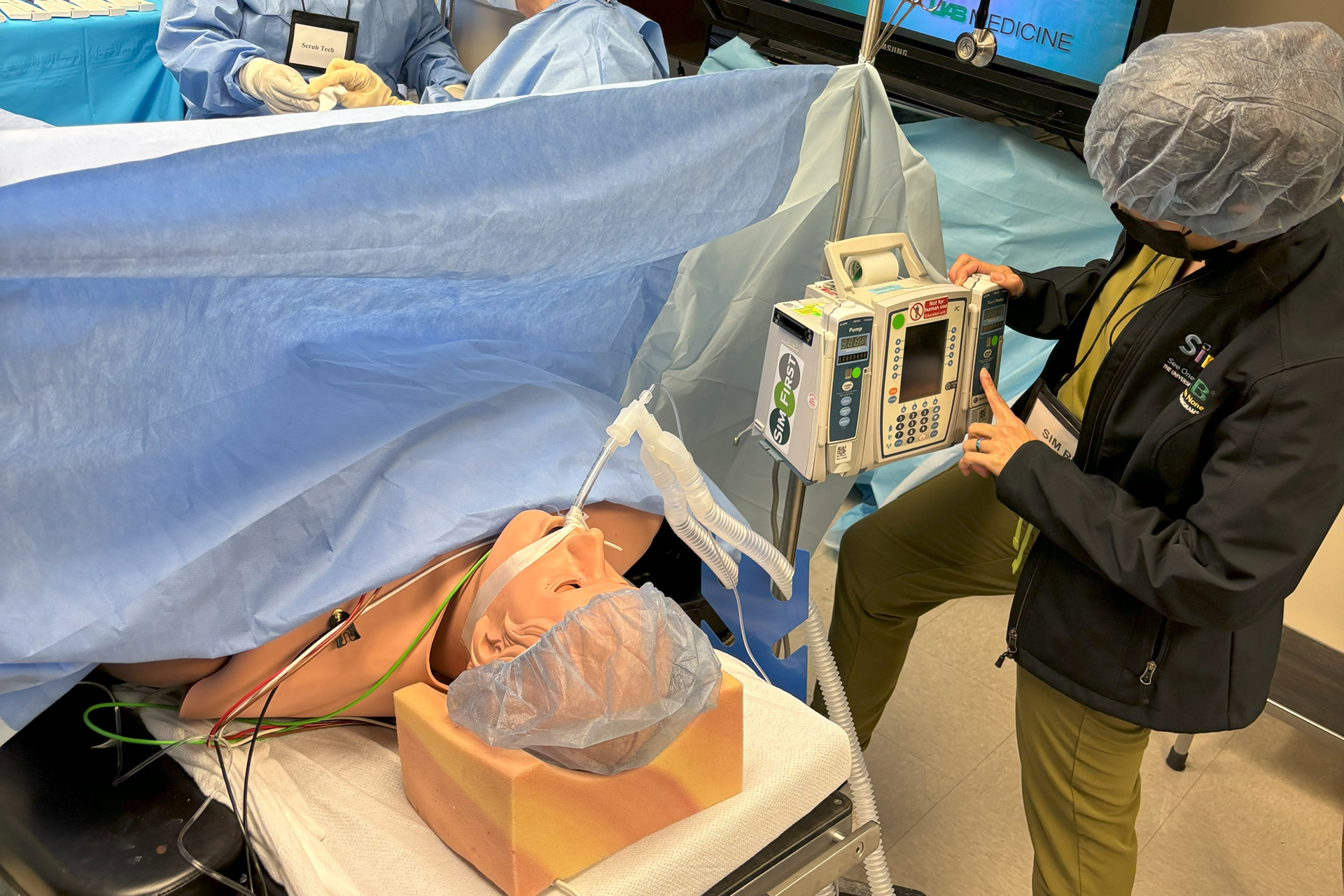Clinical Simulation serves up MOCA

Some mornings, you have coffee. With UAB Clinical Simulation, you have MOCA.
Dr. Andre Gosling had the latter.
In early December, Gosling, assistant professor in the UAB Heersink School of Medicine’s Department of Anesthesiology and Perioperative Medicine, attended a Maintenance of Certification in Anesthesia (MOCA) simulation course to meet requirements set forth by the American Board of Anesthesiology (ABA).
The course, which is endorsed by the American Society of Anesthesiologists (ASA), is the result of a partnership between Clinical Simulation and the Department of Anesthesia and Perioperative Medicine, Heersink School of Medicine, designed to realistically re-create challenging clinical cases and enable participants to problem-solve in a manner similar to a clinical experience.
“The scenarios were very realistic and provided good learning opportunities for crises not frequently encountered in clinical practice,” Gosling said.
Held over the course of a day, the course puts participants in the shoes of a primary caregiver and their backup, with each learner alternating between roles.
“Calling for help is one of the top priorities in crisis resource management,” said Andrea Hammett, simulation educator and associate director of the Department of Anesthesiology and Perioperative Medicine’s simulation program.
Gosling agreed.
“Systems need to have safety mechanisms in place to protect patients and providers,” he said. “Clear communication cannot be overemphasized in crisis situations.”
The scenarios are also privately live-streamed, allowing the learners who are not actively participating in the case to observe.
“This allows them to be active participants in the debriefing of each case,” Hammett explained.
Gosling described the simulated scenarios as “well-designed,” adding that the debriefings that followed were “extremely educational.”
As one of 10 ASA-endorsed simulation centers in the Southeast — and one out of only 55 nationwide — that’s what Clinical Simulation strives to achieve.
“Not only is it important to be one of the few in the nation that are able to conduct this course, but it is also important to our community locally to have this available for faculty who work at UAB,” Hammett said.
To learn more, visit here.




0 Comments